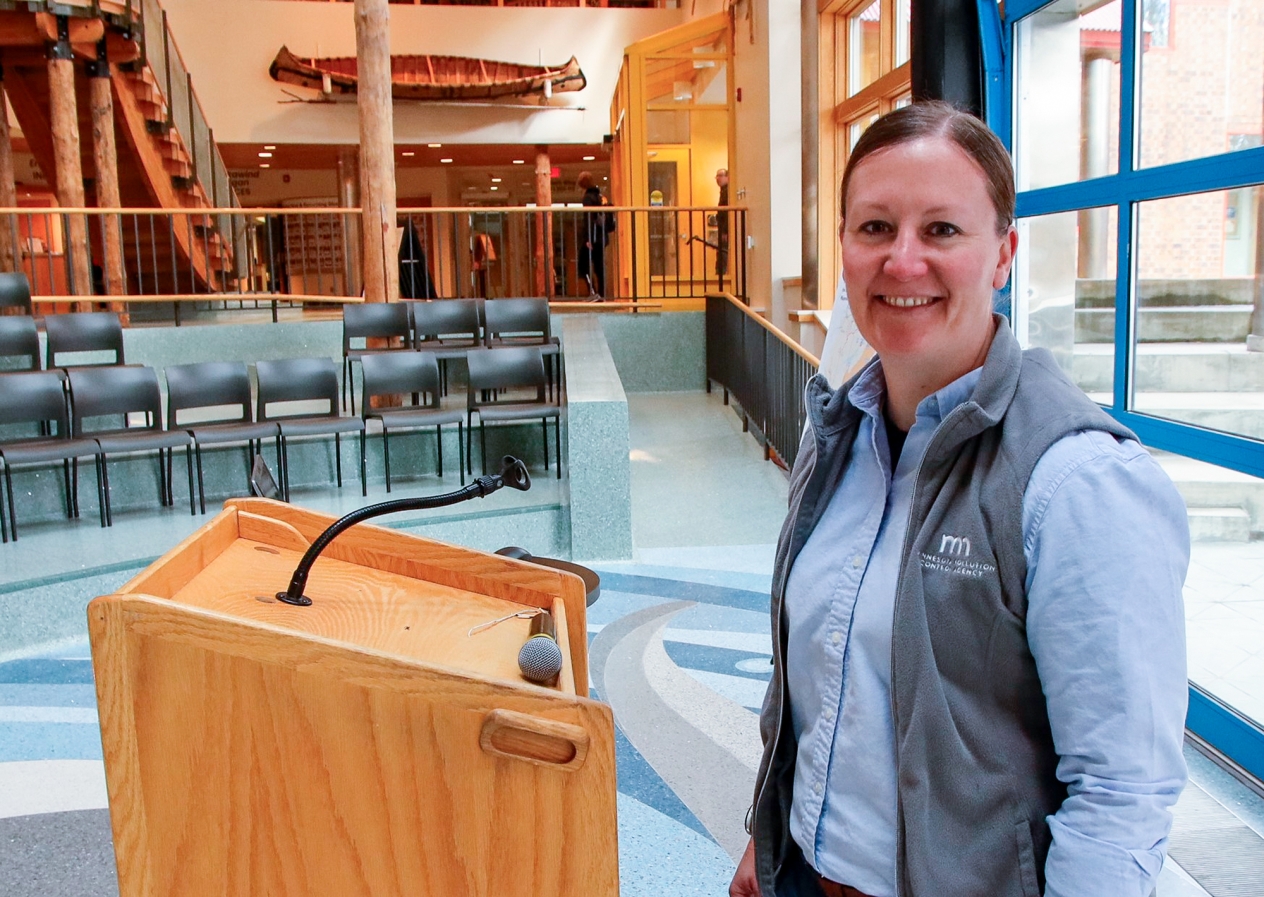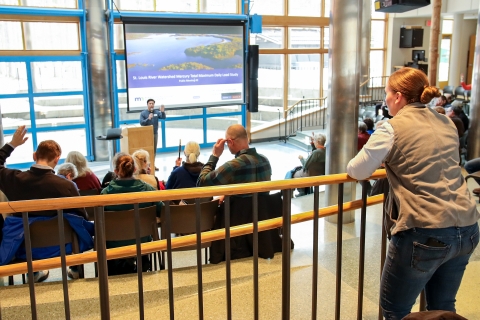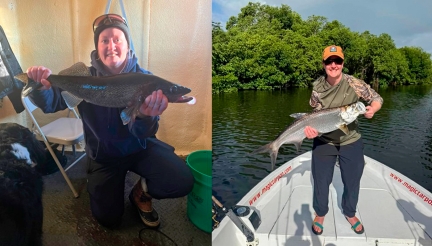
As if it weren’t enough to spend her time supporting the recent firefighting efforts in northeast Minnesota, Lisa Weidemann helps build connections between Minnesota residents and the agency’s work as a community affairs specialist with the MPCA. Whether she’s hosting information sessions online or facilitating public meetings, she’s often the first point of contact for community questions.

Q: How would you describe your job?
A: A lot of it involves public meeting planning for projects where the MPCA wants to have extra support for community engagement. My work for the past year has focused on rulemaking, permitting, and mining. I get involved in projects that have high levels of public interest.
I think people appreciate having their concerns addressed. I like being a good connector. I don’t always have answers, but I like working to help people get answers, and in turn, I usually learn something new along the way.
Q: What was your professional background before joining the MPCA?
A: I have a degree in environmental engineering from Michigan Technological University. I worked in that field for about 12 years. Eventually, I ended up taking on a role that included community engagement management and really liked it. When I saw this job open up with the MPCA, I was excited to apply. I really like being able to get out in the communities and hear what issues people are concerned with.
Q: What attracted you to engineering?
A: In high school, we had an ecology program and a really awesome chemistry teacher. I wanted to put those things together but still be able to spend time outside. And so I stumbled upon environmental engineering and really liked it. It’s funny because when I was young, I found math challenging, but I think maybe the things you find challenging can be the things you end up working on the most. I powered through.
Early in my career, I did a lot of field work, which is super fun. It meant a lot of water sampling, soil sampling, air sampling. I worked in consulting, so I was able to travel quite a bit and work for lots of different clients. I got to see a good chunk of the country, from Iowa and Illinois to Colorado, Idaho, New Mexico, Alaska, and British Columbia.

Q: You work in Duluth but retain your small-town roots. Tell us about that.
A: Yeah, I live on the Iron Range, and I think that helps me connect with local communities; there’s a level of earned trust. I like living up here.
I love living in a small town because you really know your neighbors, and there are so many ways to help the community. I’m an EMT (emergency medical technician) with the Biwabik Fire Department. With recent wildfires breaking out, I helped support structure protection and made sure generators were fueled. The fires have brought small communities together, with people offering housing and food to those who had to evacuate. There is a plethora of federal, state, and local agencies with a mixture of paid and volunteer firefighters who are out there every day to keep the community safe.
Q: What kind of success stories have you seen in your work?
A: A rural city contacted me recently because they were frustrated with an MPCA process and felt it was too slow. I was able to contact the team working on the project and understand what was going on. Frustration often turns into an opportunity for education about how the state processes work so those communities can be better prepared for future work.
Q: What are some of your current projects?
A: We just had a public meeting in Silver Bay to talk about Northshore Mining’s NPDES (industrial wastewater) permit for its plant and tailings basin. This helped inform the public about what actions MPCA was taking and about how they can provide valuable input through the public comment period.
Another is feedlot rulemaking, where we just had a virtual public meeting to kick off the rulemaking process. The first public comment period is open now through July 22. We worked to inform the public about the technical reasons that the rule is being opened and possible areas where there’s opportunity for improvement. This June, I’m helping run 13 public meetings, in person, across the state.
Q: How are you gearing up for that?
A: I am going to treat it like a road trip through the great state of Minnesota. I am planning to camp out a few nights, and I will also be stocking my vehicle with a cooler full of snacks.
Q: If you had a magic wand to change environmental things, past or present, what would you do?
A: Magic wand? (laughs) Well, I guess the change I'd like to see has to do with bringing people together. It's what I'm focused on every day, to find the perfect balance.